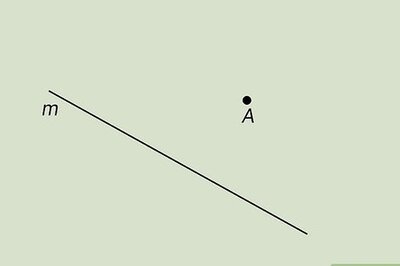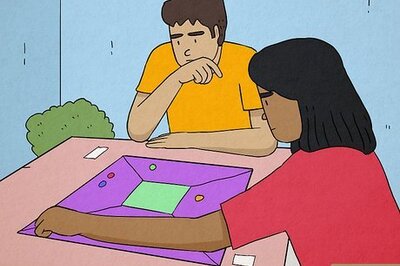
views
“Death lasts a moment or two, whereas life is not just about today or tomorrow,
I have lived life to the fullest, I will die willingly, I will come back, why should I fear going away,
O death, you should not come stealthily, come boldly and test me."
These lines from poet-prime minister Atal Bihari Vajpayee sum up his attitude towards life.
A parliamentarian who mesmerised the House with his oratory, a leader who held the public spell-bound with his speeches and a rare breed of politician who commanded respect from even his staunch opponents: that was Atal Bihari Vajpayee.
Atal ji — the man who dominated the public life for almost six decades, largely as an opposition leader and later as the Prime Minister of India — as was lovingly remembered knew how to stump his political opponents through his one liners. But who can conquer death?
An orator par excellence, Vajpayee was a darling of not only his own party-workers but also admired by his staunch political rivals that even Indian’s first Prime Minister Jawahar Lal Nehru praised young Vajpayee and predicted that the "young man" would one day become the Prime Minister of India.
That was in the early sixties. And Nehru's prophecy did come true decades later.
In the summer of 1996 Vajpayee was sworn in as the Prime Minister of India.
As a young reporter, I rushed to Vajpayee's house in Lucknow and met his nephew Anoop Mishra, who sat with me for more than an hour and also served nice jalebi (a sweet Vajpayeeji relished). A long detailed interview of Vajpayee's family was published in our special evening edition.
After exactly 13 days, the AIADMK and the Bahujan Samaj Party (BSP) withdrew support to the Vajpayee government and his government fell by just one vote. Vajpayee gave one of the finest speeches in Parliament and the entire Lok Sabha listened to the "Master orator" with rapt attention.
"Victories and defeats happen in politics, but we never tried to cobble up the numbers. But we will once again go to the public. Respected Speaker, I am going to meet the President to submit my resignation," said Vajpayee. And in a flash, Vajpayee, in his true charismatic style, walked out of the Lok Sabha.
I again rushed to Vajpayee's residence at Laplace. Once again I met his nephew Mishra who again gave me a detailed interview. And we once again brought out a special evening edition highlighting the fall of what is now the infamous 13-day Vajpayee government. Though this time Mishra did not offer any sweets, nor there were celebrations at the BJP office. But yes security outside the BSP office was beefed up.
When you talk about Vajpayee, you can't just get enough of his one liners. I remember one of Vajpayee's ardent fans in Lucknow, a young BJP worker, Shailendra, who voluntarily added the title "Atal" after his name renouncing his caste to the displeasure of his Brahmin father. This Atal had listened to virtually every speech of Vajpayeeji and never got tired of mimicking his "Vajpayee style" in front of journalists.
But for those like Lalji Tandon, an RSS old-timer from Lucknow, Vajpayee always remained a loyal friend. There were rumours how Tandon used to bring the famous Tunde Kababs for Vajpayeeji and that's how the bond between the two grew even stronger. It was a well-known fact that Vajpayeeji was fond of good food and never missed a chance to relish aloo puri and kheer whenever invited by a local BJP leader over breakfast or lunch.
Subtle humor and spontaneity were Vajpayee's hallmarks. As Prime Minister he often visited his parliamentary constituency Lucknow and we journalists never missed a chance to drag in Vajpayee's name to push our stories on the front pages of newspapers. I remember once there was a massive strike of government doctors in Uttar Pradesh. I interviewed the president of the government doctors association whose delegation wanted to meet the Prime Minister during his visit to the city. Next morning when the doctors went to meet Vajpayee, he greeted them with a smile and said, "aiye aiye doctor sahib main aap logon ka hi intazaar kar raha tha (please come, I was waiting for you all)." The doctors were taken aback and asked Vajpayeeji how he was waiting for the delegation when they had come without an appointment? Vajpayeeji took out a newspaper and showed them my front page story. "See, it is written in this newspaper that you will be coming to meet me."
Despite Atalji’s deteriorating health, his humour was still intact and his one liners started getting even sharper.
Addressing a press conference over Tehelka tapes and telecom scandal, he just said: "My dear friends in the media. I am unwell. I will not speak."
And the press conference was over. But he nevertheless remained the darling of the media.
Unlike his old friend and the BJP veteran LK Advani, Vajpayee managed to remain “secular" throughout his political career. His critics though, often refer to his controversial speech given to a group of Kar Sewaks just a day before the demolition of the Babri Masjid on December 6, 1992. "Ab bhajan, kirtan karne ke liye baithna padega aur nukilee patthar par to koi baith nahi sakta, zameen ko samtal karna padega (In order to offer prayers, Kar Sewaks will have to sit on floor and how can someone sit on sharp stones. One will have to clear all the sharp stones from the area)."
It is still not clear what Vajpayee meant by those 'sharp stones' which had to be removed from the disputed site at Ayodhya. But the truth is that Babri Masjid was demolished the next day and Vajpayeeji managed to remain absent from Ayodhya on December 6 when the Kar Sewaks pulled down the three domes of the disputed structure.
Justice Liberhan Commission (formed to probe the destruction of Babri Masjid) termed Vajpayee a pseudo-moderate along with Advani and Murli Manohar Joshi.
Ten years after demolition of the mosque, it was the same Vajpayee who reminded Narendra Modi (then Chief Minister of Gujarat) about his "Raj Dharma" during the Gujarat riots and had even made up his mind to sack him as the chief minister, had Advani not intervened and stopped him.
So how will history remember Atal Bihari Vajpayee? A young RSS pracharak who walked miles on the dusty roads of Balrampur campaigning on foot as a Jan Sangh candidate in the late 1950s or a young parliamentarian who dared to take on the mighty Nehru over release of Kashmir veteran Sheikh Abdullah? Despite being a staunch Nehru critic, Vajpayee compared Nehru to Lord Ram. “For, like Ram, Nehru was the orchestrator of the impossible and inconceivable," said Vajpayee.
Someone who co-founded the BJP in 1980, becoming its founding president, was a poet at heart. Under his leadership, the party managed to get just two Lok Sabha seats in 1985 elections. He championed Ram Mandir while managing to remain secular, allowing LK Advani to galvanise massive public support through his Rath Yatra across the country. He is someone who managed to receive accolades even from his strongest critics.
Whatever Vajpayee did, he remained at ease, be it managing political affairs in New Delhi or slipping into his poetry in his bungalow in the lap of the Himalayas in Manali.
















Comments
0 comment